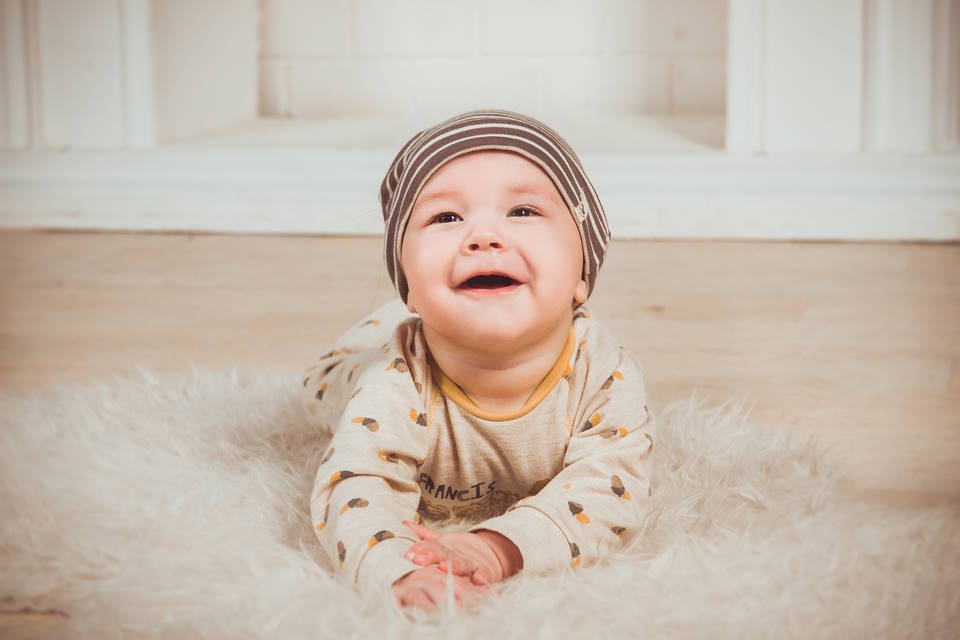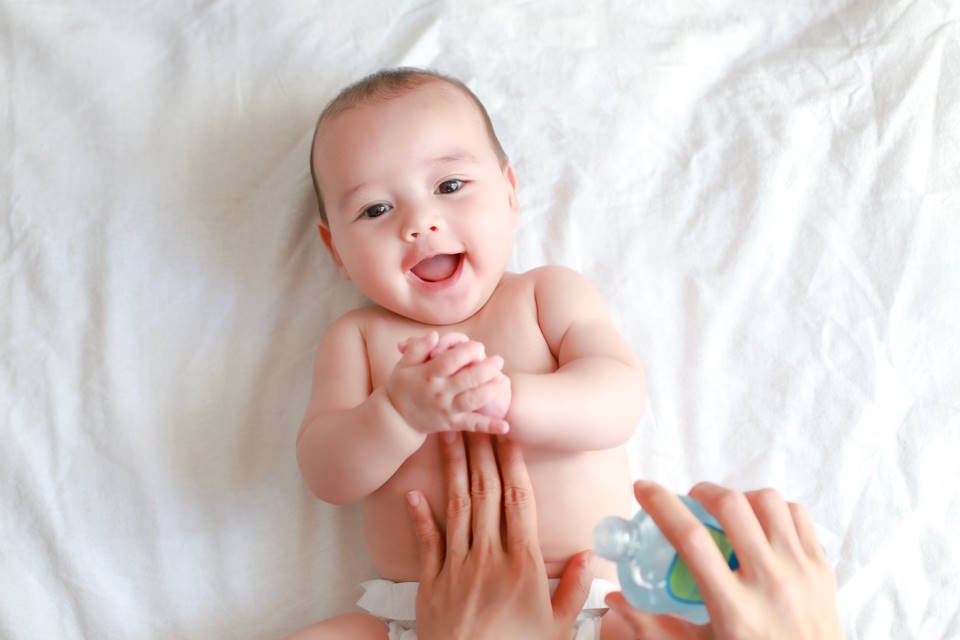As adults, we often wonder what goes on in the minds of babies. Do they think about what they see, hear, and feel? Are they aware of what they do? Do they have thoughts and emotions like us? These are common questions that many parents and caregivers have when it comes to understanding the development of their little ones. We’ll explore some of the mysteries of baby cognition, language, and emotional awareness, as well as dispel some common myths about what babies are capable of. Let’s dive in and explore the fascinating world of baby minds!
Introduction
Have you ever wondered what goes on in a baby’s mind? Babies may not be able to speak or express their thoughts and feelings through words, but that doesn’t mean they aren’t thinking. In fact, research suggests that babies are capable of complex mental processes, even from as early as in the womb.
One of the things that babies think about most is their needs. Babies have a very basic understanding of the world around them, and their thoughts are centered around their own physical and emotional needs. When they’re hungry, they’ll cry to indicate that they need food. When they’re uncomfortable or in pain, they’ll cry to let someone know that they need help.
- Another thing that babies think about is cause and effect. They are constantly trying to make sense of the world around them, and they do this by observing cause and effect relationships. For example, they may notice that when they kick their legs, a mobile above their crib starts moving, and they’ll repeat this action to see if they can make the mobile move again. This process of cause and effect helps babies to learn and develop their cognitive abilities.
- Finally, babies think about their relationships with the people around them. They are highly attuned to their parents’ emotions and expressions, and they respond to them in turn. When a parent smiles at a baby, it helps to strengthen the bond between them. When a parent is upset or stressed, a baby may become fussy or agitated as a result.
Are Babies Aware of What They Do?
When it comes to understanding the behaviours of babies, there is always a certain level of curiosity lingering among us. One of the most asked questions in this topic is whether babies are aware of what they do. It is a complex question that we can dive deep into to gain a better understanding of the nature of babies.
Firstly, it should be noted that babies are not born with the knowledge of their surroundings or actions. They slowly learn the cause and effect relationships through various stimuli and experiences. Thus, it can be said they are not fully aware of what they do at a very young age. However, as they grow up and have current or prior experiences of certain actions, they start to make connections and understand the consequences of their actions to some extent.
- For example, when a baby drops a toy repeatedly and sees it falling to the ground, the baby is not aware of the force of gravity that makes it happen. But the baby does develop a connection with the action of dropping and the consequent result of losing the toy. Therefore, as time passes, the baby learns to avoid dropping toys to keep them in their possession.
- Another example can be seen in the connection between feeding and satiety. A newborn baby cannot make any connections or preferences towards certain types of food or the concept of being hungry or full. However, as they grow up and have more feeding experiences, they learn to understand their hunger cues and the feeling of being full. Therefore, they can start to regulate their own feeding habits.
What Do Babies Think About When They Stare?
Babies are known for staring at things around them. While it seems like they are not doing anything, research suggests that babies are in fact processing a lot of information during these periods of stillness. But the million-dollar question still remains: What do babies think about when they stare?
One possibility is that babies are taking in the visual information around them and processing it in their brains. For example, they may be noticing patterns or colors in their environment. Studies have shown that younger babies focus on their caregivers’ faces during these staring periods, while older babies tend to stare at objects in their environment that are familiar to them. It is possible that they are trying to make sense of the world around them by processing visual stimuli.
- Another possibility is that babies use these staring periods to self-reflect and sort out their thoughts and emotions.
- Recent studies show that babies as young as six months are able to express emotions like joy, anger, fear, and sadness.
- Perhaps, during periods of staring, babies are reflecting on these emotions and trying to process them internally.
Finally, it is possible that babies are simply enjoying the present moment and not thinking about anything in particular. We tend to associate stillness with boredom or lack of engagement, but for babies, it may be a time to rest and recharge. After all, they are constantly taking in new information and experiencing the world around them. A period of stillness can be a refreshing break from all the stimulation.
Do Babies Know When They Are Loved?
As parents, we constantly wonder about the thoughts and feelings of our little ones. One of the most common questions that cross our minds is whether babies know when they are loved. Love plays an important role in establishing a bond between a parent and their child. However, babies cannot express their emotions like adults, which often makes us wonder if they are aware of the love we have for them.
According to experts, the answer to this question is a resounding yes. Babies are born with a natural ability to sense emotions, and they can pick up on their parents’ love and care from an early age. This is because babies primarily communicate through emotions; they are incredibly receptive to facial expressions, body language, and tone of voice. They can tell when someone is happy, sad, or angry, and they respond to these emotions accordingly.
Research has shown that from birth, babies have a preference for faces that display positive emotions. They also respond positively to affectionate touches and cuddles, which indicate care and love. Over time, babies begin to associate these positive experiences with their caregivers, forming a strong bond that increases their sense of security and wellbeing. This bond grows stronger as babies age and parents continue to show love and care towards them.
Can the Baby Feel My Thoughts?
As parents, we often wonder what our babies are thinking about. We observe their behaviors and try to make sense of their actions. One common question that parents ask is whether their babies can feel their thoughts. It is a fascinating idea, but it is essential to understand how it works before we delve into answering the question.
Research shows that babies are highly intuitive and can pick up on their parents’ emotional states. They may not understand the specifics of adult emotions, but they can sense when their parents are happy, sad, or stressed out. This is because babies are born with an innate ability to read facial expressions and tones of voice, and they rely on these to understand their environment.
- This is why it is critical for parents to be mindful of their emotional states when they are around their babies.
- Babies can pick up on negative emotions and may become distressed or fussy themselves.
- On the other hand, when parents are calm and happy, babies are more likely to be content and relaxed.
However, the idea that babies can feel their parents’ thoughts goes beyond simply reading emotional cues. Some people believe that babies can tune in to their parents’ energy and thoughts. This theory suggests that the energy created by our thoughts can be transmitted to those around us, including our babies.
| While there is no scientific evidence to support this theory, many parents believe that their babies can feel their thoughts in some way. Here are some anecdotal examples: |
|---|
| Example 1: A mother feels anxious about leaving her baby with a new babysitter while she goes to work. Her baby becomes fussy and cries excessively while she is away, even though the babysitter is attentive and caring. |
| Example 2: A father is worried about a family member who is ill. His baby, who is usually content and happy, becomes restless and agitated when he is near. |
These examples may not be scientific proof, but they do suggest that there may be a connection between a parent’s thoughts and their baby’s behavior. Even though babies may not necessarily understand our thoughts in the same way we do, they are undoubtedly influenced by them in some way. This is why it is crucial for parents to take care of their emotional well-being and seek support when needed. When parents are emotionally balanced, their babies are more likely to be happy and content as well.










